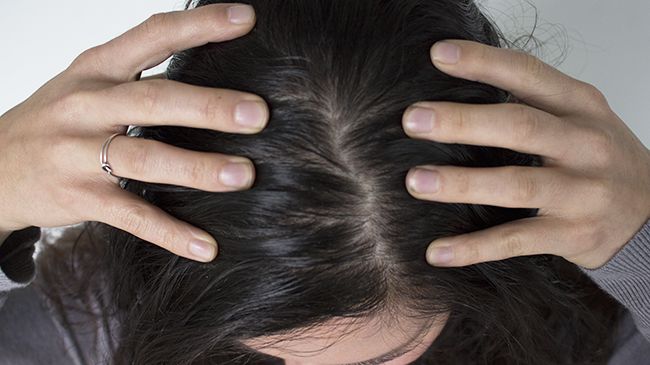
What is sebum?
Sebum is produced from the sebaceous glands and can be found anywhere on our body except the palms of our hands and the soles of our feet. Sebum is a lipid that contains squalene and does not dissolve in water. This fat-soluble compound is like cholesterols; it is secreted through the skin and is important in the skin surface lipid film that protects the body from external environments. The main purpose of sebum is to protect the hair and scalp from drying out.
How is sebum created?
Sebum is produced by the sebaceous glands found in the skin and mucus membranes. The gland cells last only around a week from formation to discharge. Sebum is a complex cocktail of lipids including glycerides, free fatty acids, cholesterol esters, cholesterol, squalene, and wax esters. Sebum does not come from the fats and oils consumed in our diets but instead from a specialized natural process.
Why do we need sebum?
Sebum is essential for the integrity and normal function of the skin as a protective organ. It is secreted to the outer skin from the sebaceous glands to maintain moisture of the skin, scalp, and hair. It is also necessary in keeping bacterial infections from getting in by creating a barrier on the skin to block them from entering our bodies. Sebum also smooths the overlapping cells of hair strands which aid in making them softer and more elastic.
Can a body produce too much sebum?
An overproduction of sebum (where the skin and hair feels extremely oil, greasy and lifeless”>, is usually associated with a change in the hormonal levels in the body. It causes the scalp to feel extremely greasy. Another culprit could be excessively drying the scalp, which causes the hair follicles to produce more sebum to counter the dryness. Sebum production is under the control androgens and the pituitary gland which is located in the brain.
Does sebum cause acne?
Sebum does not cause acne although the over-production of sebum can exacerbate the proliferation of acne. Other popular misconceptions are that makeup causes the over-production of sebum either and a greasy diet causes excessive production of sebum. Don’t believe these myths.
Does excessive shampooing increase sebum?
It can according to Michelle Hanjani, a dermatologist at Columbia University. She told NPR that when you are washing your hair you are removing sebum and if you do that daily (or too often”> then the oil glands compensate by producing more oil (or sebum”>. While she suggest persons with straight hair can hold off for a couple of times a week, she did go on to say that African Americans and others with curly hair can go even longer between washes.
It seems we came a long way to get to the answer but it makes sense when you finally understand what sebum is, where it comes from, how it is produced, and why excessive shampooing does in fact negatively affect the production of it. Sebum keeps our skin moisturized (scalp included”> and when the skin is too dry it will jump into production mode. So, wash when necessary, maybe even try the CG method and know that sebum is a necessary component of healthy hair care and not a dirty, oily word.


